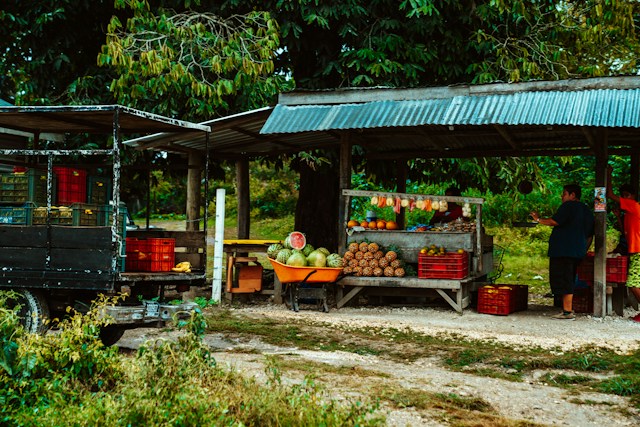Want to start a juice stand or flower stand? You’ll need to look into your local roadside selling laws.
If you fail to observe these laws, local authorities may shut down your business.
Roadside selling laws vary from one jurisdiction to the other, often linked to specific zoning ordinances, health department regulations, and business licensing requirements.
Understanding the Basics of Roadside Selling Laws

Most roadside selling laws draw heavily from specific zoning laws determined by local councils or authorities. These laws dictate where vending can take place, the type of sales that can occur, and the permissible times when roadside sales are allowed. In most jurisdictions, vending along the highways is forbidden unless the vendor acquires a specific permit from the relevant department.
Health and safety regulations are another cornerstone of the laws, especially for vendors dealing with food items. Besides ensuring they maintain the highest hygiene standards, food vendors might need to obtain permits from health departments in their regions. These permits often come with thorough health inspections to ensure compliance.
Business licensing is also a critical component of roadside selling laws. Generally, vendors are expected to possess business licenses specific to their operations. Business licensing departments usually enforce these laws to maintain fairness and competition in the vending sector.
Navigating Local Roadside Selling Laws
The variation in laws among different jurisdictions means that there are no one-size-fits-all guidelines. Each municipality, city, or county may have personalized laws that suit its unique context. To this end, small business owners need to understand the specifics of the area in which they operate.
Local councils or municipalities have well-outlined structures for obtaining the necessary information on this subject. Business owners can visit the relevant offices or even access this information online. Collaboration and consultation with local authorities eliminate the risks of violation, which might lead to penalties or closure.
This resource offers information on roadside vending in California.
Policies on Products and Pricing

In some jurisdictions, roadside selling laws touch on what products can be sold on the roadside and at what price. These laws especially apply to food vendors who, depending on the locale, might require a permit to sell specific items. Vendors dealing with local farm produce also tend to have restrictions on how they sell and price their commodities to prevent undercutting competition unfairly.
Ensuring Legal Compliance
After understanding the specifics of roadside selling laws, small business owners need to ensure to comply. This compliance might demand vendors obtain the necessary permits from local councils or health departments, depending on the nature of their merchandise. It might also require vendors to adhere to the zoning ordinances in their areas strictly.
Consequences of Non-Compliance
Non-compliance with roadside selling laws can have dire consequences for small business owners. Besides the obvious consequence of closure, vendors might face hefty fines and penalties depending on the laws’ violation nature. Some jurisdictions even hold punitive measures such as jail terms for chronic lawbreakers.
Understanding roadside selling laws is an essential step for small business owners looking to capitalize on the lucrative roadside vending industry. By respecting zoning ordinances, maintaining high standards of hygiene, obtaining the right business permits, and following the laid-down pricing and product strategies, vendors can operate their businesses successfully. The key to effective compliance is continually consulting with local authorities and ensuring that all operations conform to the law. With this understanding, small business owners stand a better chance of flourishing in the roadside vending sector.